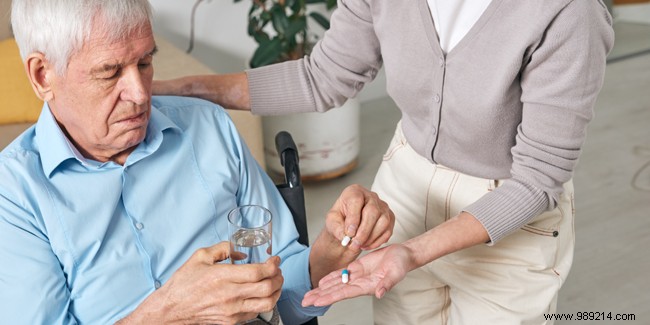
The Gerontology Care Assistant (ASG) is a function that was created as part of the "2008-2012 Alzheimer's plan", one of the objectives of which was to set up qualified jobs in terms of assistance in the acts of the daily life of people weakened by Alzheimer's disease and those around them. What is the role of an ASG? Where does he carry out his duties? Explanations.
A gerontological care assistant (ASG) is a nursing assistant or a medico-psychological assistant who intervenes after elderly people in a situation of great dependency, affected by a neurodegenerative disease such as, for example, Alzheimer's disease.
These caregivers undergo specific training that allows them to acquire support techniques in terms of care and communication adapted to the elderly who are losing their autonomy due to illnesses that cause them to become dependent.
These caregivers act daily with elderly people with loss of autonomy with attention, vigilance and solicitude in order to maintain and restore as best as possible a good quality of life for the sick.
The ASGs work with Alzheimer's patients, in particular, followed by specialized teams at their homes or housed in specialized establishments - such as the adapted care and activity centers (PASA) of nursing homes or reinforced accommodation units. (UHR) – under the responsibility of a health manager. These professionals always work in conjunction with a team of other specialists in the management of loss of autonomy, such as psychomotor therapists, occupational therapists, or psychologists.
A gerontology care assistant (ASG) has the role of providing help and support to elderly people with a neurodegenerative disease, but also to their caregivers. He or she intervenes in particular to relieve them in all the essential acts of daily life, taking into account the specificities of each dependent elderly person.
The ASG is also specifically trained in the implementation of social and cognitive stimulation activities with the aim of restoring or preserving the autonomy of elderly people with a neurodegenerative disease. The ASG can thus help the elderly person with a loss of autonomy to start dressing themselves again, to cook, etc., by insisting in particular on the pleasure of being able to redo these activities of daily life again. /P>
When the ASG intervenes with elderly people who live in specialized establishments, this healthcare professional can offer individual or collective therapeutic activities such as, for example, a cooking workshop, a gardening activity, balneotherapy, a memory workshop, etc., intended to reduce the behavioral problems of these patients and maintain a social link with them.
In all cases, the intervention of the ASG also helps the elderly person with a loss of autonomy to fight against loneliness and boredom.
In addition to their role of assistance and support, ASGs contribute more generally to being able to assess the needs of elderly people with sensory, physical or psychological deficiencies or behavioral disorders. These healthcare professionals also make it possible to monitor these dependent elderly people as closely as possible and thus prevent possible complications of their state of health.
The ASGs are also there to ensure the well-being of the carers of these dependent elderly people. They listen to them, advise and guide them, especially when it comes to a loved one at home to adapt their living environment as best as possible according to the person with loss of autonomy they are caring for.